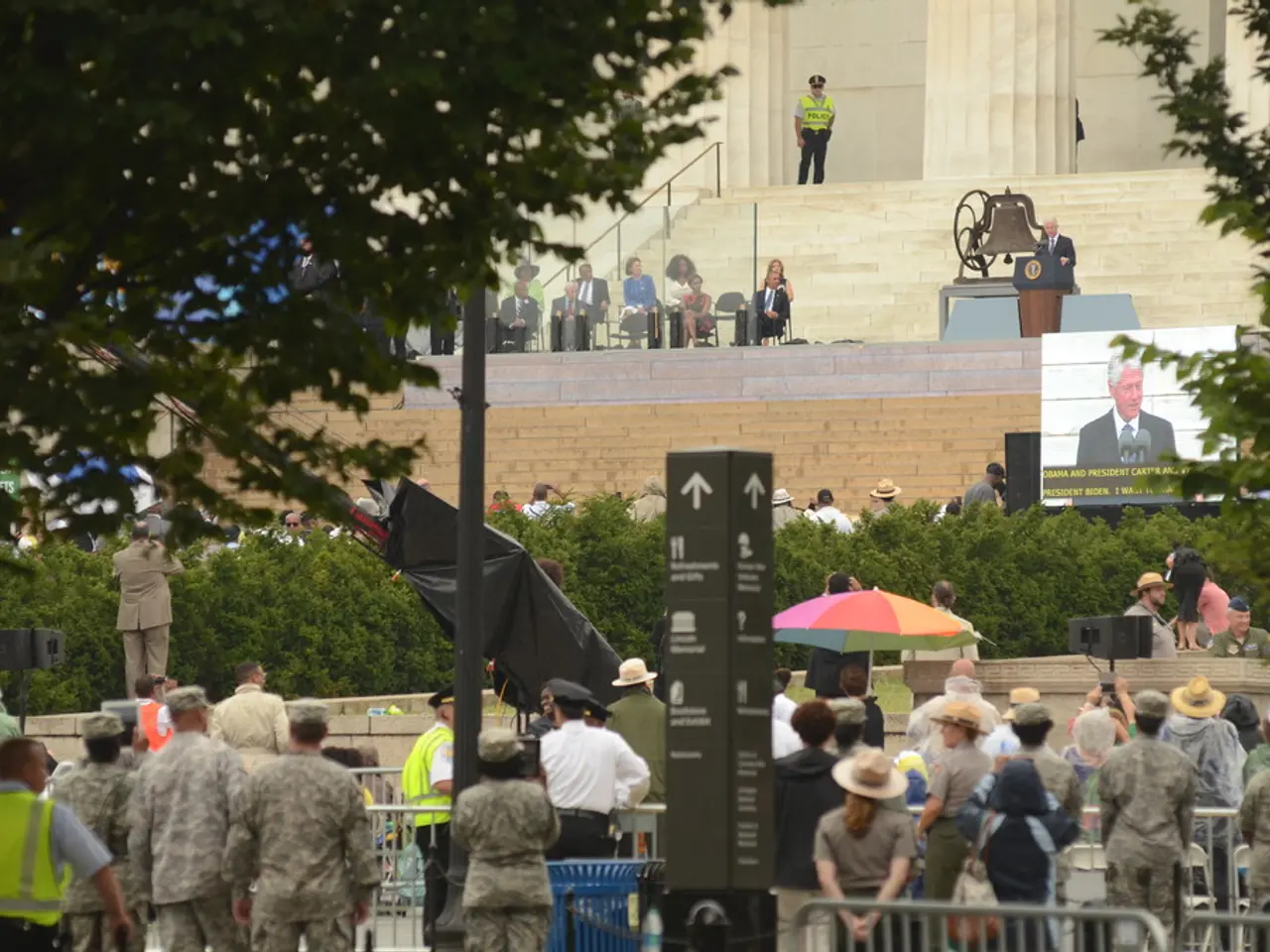Numerous Approvals Met with Various Concerns
Loose Cannon: Trump's Risky Gambit on Iran
In a fiery speech from the Oval Office, President Trump threatened "Peace or Catastrophe" to Iran, praising military leaders for airstrikes on their nuclear program. He expressed his devotion to his nation and the Almighty: "God, we adore you." The screen behind him showcased the mugs of Republican Party politicians and MAGA loyalists, rather than generals. Even though the top brass of the air force and army obediently follow orders, it's unknown if Trump's die-hard MAGA supporters will remain loyal in the long run.
American citizens are no strangers to anticipation and speculation. This was the case post-9/11 and the second Iraq war under Bush's neoconservative government. But in recent days, Americas have voiced concerns about any rose-tinted optimism concerning the Middle East. History has demonstrated that swift military operations too often morph into prolonged wars.
According to a recent Washington Post poll, in the run-up to the military strikes on Iran, 45 percent of Americans were against such an attack, while only 25 percent were in support. The rest remained undecided. Experts on Middle Eastern affairs view the attacks with skepticism.
Ryan Crocker, a veteran diplomat and former ambassador for RAND Corporation, expressed grave reservations before the attacks to Politico. He argued that neither Israeli nor American attacks could completely eliminate Iran's efforts to create a nuclear bomb.
Dennis Ross, former special envoy for the Middle East during Obama's presidency, stated that while there may be bombs for bunkers, there are none for entire mountains. Ray Takeyh of the Council on Foreign Relations is confident that Iran's leadership will revert to guerrilla warfare tactics, with similar success as in the past.
In essence, Iran can be debilitated, but taming it without diplomacy is a pipe dream. It is worth noting that Iran, twice the size of Texas, is also as large as Afghanistan. The majority of American populace and experts understand that a military enemy can be weakened, but not brainwashed or ousted.
Critics within the German Social Democratic Party (SPD) have slammed the US attack on Iran. Stegner, the SPD's foreign policy spokesman, declared, "Not a good day for those who long for peace." Iran fears potential US intervention, while tensions between Iran and Israel continue to escalate. Trump's intentions remain unclear. The US government's position in the conflict between Israel and Iran has yet to be defined.
The Potential Fallout:The potential long-term consequences of the U.S. airstrikes on Iran's nuclear program, according to experts and recent assessments, include significant risks of escalating military conflict and regional instability. Following the U.S.-Israeli airstrikes, several Iranian nuclear facilities remain intact, including crucial sites like Arak and Bushehr, indicating that while the strikes caused damage, the nuclear program is not completely crippled.
Experts warn that Iran's likely retaliatory responses may include guerrilla warfare tactics such as terror attacks or cyber operations. There is also the potential for Iran to target U.S. bases and personnel in the Middle East, which could lead to severe U.S. military reprisals and threaten the survival of the Iranian regime.
Additionally, Iran has threatened to close off the Strait of Hormuz, a strategic chokepoint for global oil shipments, which could disrupt international oil markets and trigger broader economic consequences worldwide.
The conflict thus risks evolving beyond direct military confrontation to include economic disruption and proxy warfare, with the strength and response of the Iranian regime being a critical factor in determining the conflict's trajectory. Public opinion and international bodies like the UN Security Council are being drawn into debates on legitimacy and responses, showing the geopolitical complexity and long-term uncertainties following the airstrikes.
- The escalating war-and-conflicts between Iran and the United States, driven by politics, has led to concerns about potential long-term consequences, such as regional instability and the risk of a prolonged war.
- In discussions about the conflict between Iran and Israel, general-news outlets have featured expert opinions on the potential for Iran to retaliate with guerrilla warfare tactics, underscoring the complexities and uncertainties in the Middle East.





